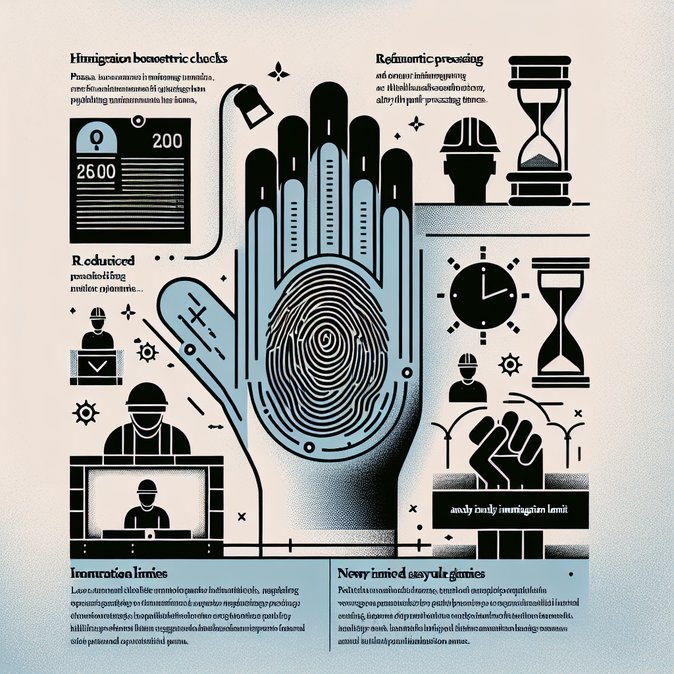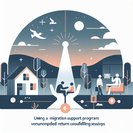
In a marathon session that ended just after midnight on 21 November 2025, Switzerland’s bicameral Federal Assembly passed the most sweeping revision of the Federal Act on Foreign Nationals and Integration (FNIA) since 2014. The bill introduces annual numerical ceilings for several categories of third-country workers, mandates systematic biometric checks at all land borders and shortens the statutory deadline for most asylum decisions from 140 to 90 days.
Under the new regime, Parliament—not the Federal Council—will set global ceilings each autumn for the following calendar year. Cantons will continue to allocate individual permits but must remain within the federal envelope. Lawmakers said the change was needed after net immigration hit a 17-year high in 2025 amid labour shortages in health care, construction and IT. Unions unsuccessfully fought for exemptions for critical-infrastructure employers; those industries will instead have access to a separate contingency reserve that can be activated by the Federal Council.
![Swiss Parliament Approves Immigration Overhaul with Annual Work-Permit Ceilings and Biometric Border Checks]()
A second pillar of the reform requires that every person crossing a Swiss external border provide four fingerprints and have their passport photo matched against a live facial image. The measure aligns Swiss practice with the EU Entry/Exit System that Switzerland has started deploying at airports but extends it to vehicular and rail crossings with France, Italy, Austria and Germany. The infrastructure investment—estimated at CHF 240 million—will be financed through a new CHF 8 surcharge on biometric residence permits.
For corporate mobility managers the headline implication is predictability: annual quotas will be published in advance, allowing workforce planners to decide early whether to recruit talent locally, relocate existing staff or pursue project outsourcing. However, tighter asylum timelines could strain legal-aid resources, and the biometric checks may lengthen cross-border commutes for Italian staff who drive into Ticino each day.
The Federal Council must now draft implementing ordinances; most provisions are slated to enter into force on 1 July 2026. Employers’ associations, while welcoming the clarity on quotas, have urged Bern to digitise the application process before the new caps bite.
Under the new regime, Parliament—not the Federal Council—will set global ceilings each autumn for the following calendar year. Cantons will continue to allocate individual permits but must remain within the federal envelope. Lawmakers said the change was needed after net immigration hit a 17-year high in 2025 amid labour shortages in health care, construction and IT. Unions unsuccessfully fought for exemptions for critical-infrastructure employers; those industries will instead have access to a separate contingency reserve that can be activated by the Federal Council.

A second pillar of the reform requires that every person crossing a Swiss external border provide four fingerprints and have their passport photo matched against a live facial image. The measure aligns Swiss practice with the EU Entry/Exit System that Switzerland has started deploying at airports but extends it to vehicular and rail crossings with France, Italy, Austria and Germany. The infrastructure investment—estimated at CHF 240 million—will be financed through a new CHF 8 surcharge on biometric residence permits.
For corporate mobility managers the headline implication is predictability: annual quotas will be published in advance, allowing workforce planners to decide early whether to recruit talent locally, relocate existing staff or pursue project outsourcing. However, tighter asylum timelines could strain legal-aid resources, and the biometric checks may lengthen cross-border commutes for Italian staff who drive into Ticino each day.
The Federal Council must now draft implementing ordinances; most provisions are slated to enter into force on 1 July 2026. Employers’ associations, while welcoming the clarity on quotas, have urged Bern to digitise the application process before the new caps bite.








